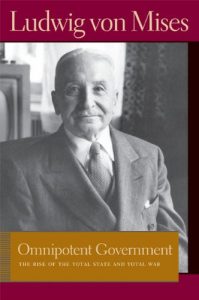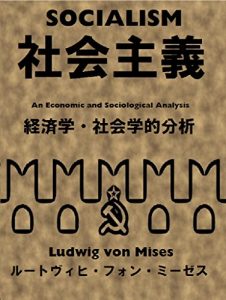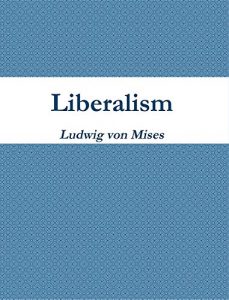Published in 1944, during World War II, Omnipotent Government was Mises's first book written and published after he arrived in the United States. In this volume Mises provides in economic terms an explanation of the international conflicts that caused both world wars. Although written more than half a century ago, Mises's main theme still stands: government interference in the economy leads to conflicts and wars. According to Mises, the last and best hope for peace is liberalism—the philosophy of liberty, free markets, limited government, and democracy.Ludwig von Mises (1881–1973) was the leading spokesman of the Austrian School of economics throughout most of the twentieth century. He earned his doctorate in law and economics from the University of Vienna in 1906. In 1926, Mises founded the Austrian Institute for Business Cycle Research. From 1909 to 1934, he was an economist for the Vienna Chamber of Commerce. Before the Anschluss, in 1934 Mises left for Geneva, where he was a professor at the Graduate Institute of International Studies until 1940, when he emigrated to New York City. From 1948 to 1969, he was a visiting professor at New York University.Bettina Bien Greaves is a former resident scholar, trustee, and longtime staff member of the Foundation for Economic Education. She has written and lectured extensively on topics of free market economics. Her articles have appeared in such journals as Human Events, Reason, and The Freeman: Ideas on Liberty. A student of Mises, Greaves has become an expert on his work in particular and that of the Austrian School of economics in general. She has translated several Mises monographs, compiled an annotated bibliography of his work, and edited collections of papers by Mises and other members of the Austrian School.
Omnipotent Government: The Rise of the Total State and Total War (Lib Works Ludwig Von Mises PB)
Sobre
Talvez você seja redirecionado para outro site












